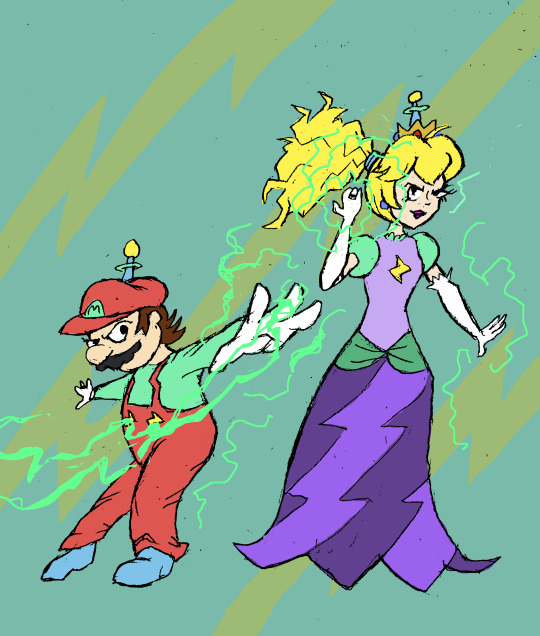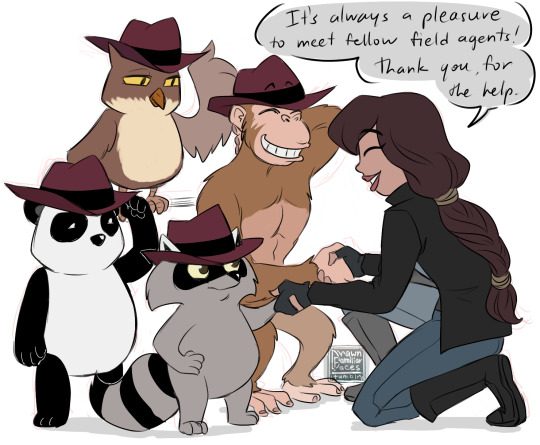#M&P
Explore tagged Tumblr posts
Text

ELECTRO FORM
A brand new powerup concept for Mario & Peach, also known as my Mareach fangame! As Electro Mario/Peach, you can shoot sparks straight forward, and they'll travel a small distance before bursting. You can also charge up the sparks for longer distance and bigger bursts!
27 notes
·
View notes
Text
M&P 10mm with 2mags and a box of 30ammo $370 shipping cost included wherever you are
Tap in we up and ready for business

20 notes
·
View notes
Text


Chiefs kiss
3 notes
·
View notes
Text
Play Space/Mech/Pilot right now

58K notes
·
View notes
Text
Smith & Wesson M&P 9mm



#lockport il#rink's#guncology#concealed carry#rink's gun and sport#smith and wesson#m&p#second amendment
0 notes
Text
Older men with dad bods, guys with scruffy beards, men with tattoos, dads with deep voices, older men with soft tummies, middle aged guys with glasses, men with large hands 😵💫
#·˚ ༘ ໒꒰ྀི 𝒷𝓊𝓃𝓃𝒾’𝓈 𝓉𝒽𝑜𝓊𝑔𝒽𝓉𝓈 ꒱ྀི১ ·˚ ༘#𝒾 𝓃𝑒𝑒𝒹 𝒶 𝑔𝑒𝓃𝓉𝓁𝑒 𝑔𝒾𝒶𝓃𝓉 ૮ ◞ ⸝⸝ ◟ ྀིა#DO NOT INTERACT if you use any m@p tags UR GROSS & WEIRDDDD#older man younger woman#dad bf#age g4p#age difference#daddy d0m#older is better#oldermen#older guys#daddy issues
6K notes
·
View notes
Text
i'm sort of a 0-trick pony
#text#a jack of no trades if you will#op loves trans people and hates h*rry p*tter/m*rauders fans for the record#peer reviewed banger
3K notes
·
View notes
Text
I've mentioned my Mareach fangame at least a few times now. It's time I introduced you to the largest collection of antagonists in the story (though none of them are the MAIN villain quite like Bowser's father, Corzar, is).
The Liquidation Firm.
An elite team of mercenaries hired by Corzar to eliminate Mario and Peach from the picture. Although, while they are very malicious and very deadly, they do have a strange penchant for dressing up as and acting like run-of-the-mill office workers...

Meet the leader, Beatrix. She's organized, punctual, efficient, and brutal in combat. Her intellect is nearly unmatched and her flowcharts span for days. Despite Beatrix's grisly track record, she maintains a calm and cordial demeanor at all times. Though just occasionally it does seem like she's hiding something...
Beatrix runs her league of mercenaries with the help of three key lackeys.

This would be the first of those lackeys! Maxton, HR Manager. He believes in the power of teamwork, synergy, and a can-do attitude! And God help you if he finds you behaving in any other way.

Next is Priscilline, Administrative Assistant. Her debilitating caffeine addiction helps her burn that midnight oil, and it also makes for a surprising source of battle fuel. Mess with the Red Bull and you get the horns.

Last is Stackwell, Lead Accountant. This he/they nonbinary may look like a short stack, but he is perhaps the deadliest of Beatrix's crew. He's precise and calculating, and he often sees the world as a great cluster of logic puzzles to be solved. Don't be surprised if you constantly find yourself two steps behind his keen ploys of sabotage.
This colorful assortment of officecore thugs all serve as the recurring minibosses that consistently ambush Mario and Peach at regular intervals throughout the game. Be prepared at all times...
8 notes
·
View notes
Text

Catherynne M. Valente, from The Bread We Eat in Dreams; "The Red Girl," published in 2013
#lit#catherynne m. valente#prose#the red girl#fragments#typography#dark academia#writings#selections#fragment#quote#p
5K notes
·
View notes
Text

Drawing a Vocaloid song everyday for 100 days Challenge
Day 46 Anonymous M
#digital art#digital drawing#digital illustration#fanart#vocaloid#anime art#hatsune miku#pinocchio p#anonymous M
1K notes
·
View notes
Text
Gedanken eines Geistes 06.01.24
Wir schreiben das Jahr 2024 und sind im Monat Janurar.
Das letzte Jahr also 2023 war für mich ein sehr durchwachsenes Jahr, mit vielen Höhen aber genauso vielen Tiefs.
Ich fang einfach mal von vorne an.
Ich traf meine Freundin damals in einem Livestream von Lovoo. Ich wusste nicht wie mir geschah, aber ich wusste, Sie ist es. Niemand anders. Nur SIE! Wir haben uns dann endlich getroffen, haben uns gedatet und dann hatte ich komplett verloren im positiven Sinne natürlich, denn ich konnte Sie meine Freundin nennen *__* . Dann ein paar Monate später passierten dann leider unter bescheidenen Bedingungen ein paar, nennen wir es mal Missgeschicke, die ich Ihr aus purer Liebe zu Ihr verziehen habe. Die zwei anderen Unglücke die danach folgten habe ich Ihr auch verziehen, weil ich nicht gewillt war meine Beziehung mit Ihr aufzugeben weil Sie sich gebückt hat um sich Steine genauer anzusehen. Ich habe gekämpft bis zum letzten tropfen Blut den ich habe und was ist passiert? Genau, es hat sich gelohnt!
Der letztere Stein hat Sie grausamer weise dazu getrieben, aus purer Verzweiflung und Verletzung sich versucht das Leben zu nehmen. Ich habe mit Ihr geschrieben und gemerkt, das etwas nicht stimmt, habe nachgefragt und weiter gefragt bis Sie mir die Wahrheit gesagt hat, dass Sie eine Überdosis von sehr starkem Schlafmittel genommen hat. Ich habe alles stehen und liegen lassen und bin mit Sonderrechten zu Ihr gefahren, zu meiner Frau!
Im Krankenhaus fingen die Tabletten an zu wirken und ich hätte es mir nie im meinem ganzen Leben verzeihen können, wenn Ihr was passiert wäre, wenn ich nicht Ihre Eltern angerufen und selbst hingefahren wäre.
Meine Frau wollte das ich Sie ins Krankenhaus fahre, dass ich Sie im Anschluss in die Klinik fahren soll. Ich bin Ihr nicht von der Seite gewichen. Habe Sie so oft es ging in der Klinik besucht, auch wenn das für mich hieß, dass ich dafür Schlaf einbüßen muss, es war mir egal, denn Sie war und ist es mir wert..!
Es sind nur Vermutungen die ich aufstellen kann, denn ich werde es vermutlich nie erfahren, was Sie wirklich denkt oder gedacht hat in diesem Moment, aber Sie hat sich ganz klar für mich entschieden, Ihren Mann. Der Sie bedingungslos liebt, der Loyal ist und versucht alles in seiner Macht stehende zu tun, dass es ein wir gibt, dass Sie die stärkenden Hände im Rücken hat um selber zu wachsen.
Viele Faktoren haben gegen uns gesprochen. Meine Familie, Freunde, Arbeitskollegen, aber ich nehme das nur zur Kenntnis, denn es ist mein Leben und meine Entscheidung wie ICH es leben möchte. Ich habe dieses Leben alleine begonnen, aber ich möchte dieses Leben mit dir, meiner Frau zusammen weiter leben.
Sie hat ab und zu Ihre Launen, aber das ist der Krankheit geschuldet. Ich habe mich damit sehr genau auseinander gesetzt und weiß worauf ich mich einlasse. Ich liebe meine Frau wie niemand anderen vor Ihre. "Ja das sagt man bei jeder neuen Frau in seinem Leben" <= Nein! Genau da ist der Unterschied. Andere sagen das bei jeder Frau, ich sage das nur bei meiner Frau! Weil es bei keiner anderen vorher so in mir gebrannt hat vor Leidenschaft und Liebe zu Ihr!
Unterm Strich, haben wir beide gesagt, wir versuchen es ein aller aller letztes Mal und geben uns beide auch die Mühe, jeder für sich, dass es jetzt endlich so bleibt. Ich möchte Sie später einmal Frau ***** nennen dürfen!
Ich habe Ihr schon einmal einen derartigen Text geschrieben, der aber Geheim ist, den nur Sie lesen kann, aber jetzt mache ich es hier, mein aller erster Text auf Tumblr.
Ich liebe dich mein Schatz, mehr als du es dir je erträumen oder vorstellen kannst.

1 note
·
View note
Text

PnF Spirit Week 2: May 30th - Any other OWCA Agent
Being one of the rare human field agents in the whole of international OWCA may be a little lonely at times, but Lyla Lolliberry can't really complain, not when her job is amazingly fullfulling, nor when she gets to work with exceptional agents.

#pnf#phineas and ferb#pnfspiritweek#lyla lolliberry#owca#peter the panda#agent r#agent p#agent m#agent o#LISTEN call me a basic bitsh but THIS was the prompt i was excited about!! because LYLA LOLLIBERRYYYYYY#i was literally obsessed with her the first time i saw her! just the idea of a human agent in OWCA was so unexpected but so fun#just imagine this Laura croft parody but working with animals is fadslkjafdslkjadsldk
1K notes
·
View notes
Text
STURNIOLO P!LINK LIST PART 2


nsfw twitter links
part 1 | part 3
Matt
he loves cumming on your belly
riding his thigh
his favourite food
your body is too beautiful not to touch
he's a moaning mess
you love riding him, he loves when you ride him
Chris
a finger? nah, the whole hand
he's so gentle
he missed your taste
he loves making you feel good
he wanted to take a shower with you
he's so needy and pathetic
Both
threesome with your bf and his brother
both? fuck yeah

comment if you want to be tagged in future p links posts
Taglist: @seeing-stars-today @ilsaxdemi @sturnsmadl
#sturniolo triplets#sturniolo#sturniolo fandom#the sturniolos#sturniolos#matt sturniolo#chris sturniolo#christopher sturniolo#matthew sturniolo#ale!other#ale!other m#ale!other c#sturniolo p links#p links
892 notes
·
View notes
Text
The one weird monopoly trick that gave us Walmart and Amazon and killed Main Street

I'm coming to BURNING MAN! On TUESDAY (Aug 27) at 1PM, I'm giving a talk called "DISENSHITTIFY OR DIE!" at PALENQUE NORTE (7&E). On WEDNESDAY (Aug 28) at NOON, I'm doing a "Talking Caterpillar" Q&A at LIMINAL LABS (830&C).

Walmart didn't just happen. The rise of Walmart – and Amazon, its online successor – was the result of a specific policy choice, the decision by the Reagan administration not to enforce a key antitrust law. Walmart may have been founded by Sam Walton, but its success (and the demise of the American Main Street) are down to Reaganomics.
The law that Reagan neutered? The Robinson-Patman Act, a very boring-sounding law that makes it illegal for powerful companies (like Walmart) to demand preferential pricing from their suppliers (farmers, packaged goods makers, meat producers, etc). The idea here is straightforward. A company like Walmart is a powerful buyer (a "monopsonist" – compare with "monopolist," a powerful seller). That means that they can demand deep discounts from suppliers. Smaller stores – the mom and pop store on your Main Street – don't have the clout to demand those discounts. Worse, because those buyers are weak, the sellers – packaged goods companies, agribusiness cartels, Big Meat – can actually charge them more to make up for the losses they're taking in selling below cost to Walmart.
Reagan ordered his antitrust cops to stop enforcing Robinson-Patman, which was a huge giveaway to big business. Of course, that's not how Reagan framed it: He called Robinson-Patman a declaration of "war on low prices," because it prevented big companies from using their buying power to squeeze huge discounts. Reagan's court sorcerers/economists asserted that if Walmart could get goods at lower prices, they would sell goods at lower prices.
Which was true…up to a point. Because preferential discounting (offering better discounts to bigger customers) creates a structural advantage over smaller businesses, it meant that big box stores would eventually eliminate virtually all of their smaller competitors. That's exactly what happened: downtowns withered, suburban big boxes grew. Spending that would have formerly stayed in the community was whisked away to corporate headquarters. These corporate HQs were inevitably located in "onshore-offshore" tax haven states, meaning they were barely taxed at the state level. That left plenty of money in these big companies' coffers to spend on funny accountants who'd help them avoid federal taxes, too. That's another structural advantage the big box stores had over the mom-and-pops: not only did they get their inventory at below-cost discounts, they didn't have to pay tax on the profits, either.
MBA programs actually teach this as a strategy to pursue: they usually refer to Amazon's "flywheel" where lower prices bring in more customers which allows them to demand even lower prices:
https://www.youtube.com/watch?v=BaSwWYemLek
You might have heard about rural and inner-city "food deserts," where all the independent grocery stores have shuttered, leaving behind nothing but dollar stores? These are the direct product of the decision not to enforce Robinson-Patman. Dollar stores target working class neighborhoods with functional, beloved local grocers. They open multiple dollar stores nearby (nearly all the dollar stores you see are owned by one of two conglomerates, no matter what the sign over the door says). They price goods below cost and pay for high levels of staffing, draining business off the community grocery store until it collapses. Then, all the dollar stores except one close and the remaining store fires most of its staff (working at a dollar store is incredibly dangerous, thanks to low staffing levels that make them easy targets for armed robbers). Then, they jack up prices, selling goods in "cheater" sizes that are smaller than the normal retail packaging, and which are only made available to large dollar store conglomerates:
https://pluralistic.net/2023/03/27/walmarts-jackals/#cheater-sizes
Writing in The American Prospect, Max M Miller and Bryce Tuttle1 – a current and a former staffer for FTC Commissioner Alvaro Bedoya – write about the long shadow cast by Reagan's decision to put Robinson-Patman in mothballs:
https://prospect.org/economy/2024-08-13-stopping-excessive-market-power-monopoly/
They tell the story of Robinson-Patman's origins in 1936, when A&P was using preferential discounts to destroy the independent grocery sector and endanger the American food system. A&P didn't just demand preferential discounts from its suppliers; it also charged them a fortune to be displayed on its shelves, an early version of Amazon's $38b/year payola system:
https://pluralistic.net/2022/11/28/enshittification/#relentless-payola
They point out that Robinson-Patman didn't really need to be enacted; America already had an antitrust law that banned this conduct: section 2 of the the Clayton Act, which was passed in 1914. But for decades, the US courts refused to interpret the Clayton Act according to its plain meaning, with judges tying themselves in knots to insist that the law couldn't possibly mean what it said. Robinson-Patman was one of a series of antitrust laws that Congress passed in a bid to explain in words so small even federal judges could understand them that the purpose of American antitrust law was to keep corporations weak:
https://pluralistic.net/2023/04/14/aiming-at-dollars/#not-men
Both the Clayton Act and Robinson-Patman reject the argument that it's OK to let monopolies form and come to dominate critical sectors of the American economy based on the theoretical possibility that this will lead to lower prices. They reject this idea first as a legal matter. We don't let giant corporations victimize small businesses and their suppliers just because that might help someone else.
Beyond this, there's the realpolitik of monopoly. Yes, companies could pass lower costs on to customers, but will they? Look at Amazon: the company takes $0.45-$0.51 out of every dollar that its sellers earn, and requires them to offer their lowest price on Amazon. No one has a 45-51% margin, so every seller jacks up their prices on Amazon, but you don't notice it, because Amazon forces them to jack up prices everywhere else:
https://pluralistic.net/2024/03/01/managerial-discretion/#junk-fees
The Robinson-Patman Act did important work, and its absence led to many of the horribles we're living through today. This week on his Peoples & Things podcast, Lee Vinsel talked with Benjamin Waterhouse about his new book, One Day I’ll Work for Myself: The Dream and Delusion That Conquered America:
https://athenaeum.vt.domains/peoplesandthings/2024/08/12/78-benjamin-c-waterhouse-on-one-day-ill-work-for-myself-the-dream-and-delusion-that-conquered-america/
Towards the end of the discussion, Vinsel and Waterhouse turn to Robinson-Patman, its author, Wright Patman, and the politics of small business in America. They point out – correctly – that Wright Patman was something of a creep, a "Dixiecrat" (southern Democrat) who was either an ideological segregationist or someone who didn't mind supporting segregation irrespective of his beliefs.
That's a valid critique of Wright Patman, but it's got little bearing on the substance and history of the law that bears his name, the Robinson-Patman Act. Vinsel and Waterhouse get into that as well, and while they made some good points that I wholeheartedly agreed with, I fiercely disagree with the conclusion they drew from these points.
Vinsel and Waterhouse point out (again, correctly) that small businesses have a long history of supporting reactionary causes and attacking workers' rights – associations of small businesses, small women-owned business, and small minority-owned businesses were all in on opposition to minimum wages and other key labor causes.
But while this is all true, that doesn't make Robinson-Patman a reactionary law, or bad for workers. The point of protecting small businesses from the predatory practices of large firms is to maintain an American economy where business can't trump workers or government. Large companies are literally ungovernable: they have gigantic war-chests they can spend lobbying governments and corrupting the political process, and concentrated sectors find it comparatively easy to come together to decide on a single lobbying position and then make it reality.
As Vinsel and Waterhouse discuss, US big business has traditionally hated small business. They recount a notorious and telling anaecdote about the editor of the Chamber of Commerce magazine asking his boss if he could include coverage of small businesses, given the many small business owners who belonged to the Chamber, only to be told, "Over my dead body." Why did – why does – big business hate small business so much? Because small businesses wreck the game. If they are included in hearings, notices of inquiry, or just given a vote on what the Chamber of Commerce will lobby for with their membership dollars, they will ask for things that break with the big business lobbying consensus.
That's why we should like small business. Not because small business owners are incapable of being petty tyrants, but because whatever else, they will be petty. They won't be able to hire million-dollar-a-month union-busting law-firms, they won't be able to bribe Congress to pass favorable laws, they can't capture their regulators with juicy offers of sweet jobs after their government service ends.
Vinsel and Waterhouse point out that many large firms emerged during the era in which Robinson-Patman was in force, but that misunderstands the purpose of Robinson-Patman: it wasn't designed to prevent any large businesses from emerging. There are some capital-intensive sectors (say, chip fabrication) where the minimum size for doing anything is pretty damned big.
As Miller and Tuttle write:
The goal of RPA was not to create a permanent Jeffersonian agrarian republic of exclusively small businesses. It was to preserve a diverse economy of big and small businesses. Congress recognized that the needs of communities and people—whether in their role as consumers, business owners, or workers—are varied and diverse. A handful of large chains would never be able to meet all those needs in every community, especially if they are granted pricing power.
The fight against monopoly is only secondarily a fight between small businesses and giant ones. It's foundationally a fight about whether corporations should have so much power that they are too big to fail, too big to jail, and too big to care.

Community voting for SXSW is live! If you wanna hear RIDA QADRI and me talk about how GIG WORKERS can DISENSHITTIFY their jobs with INTEROPERABILITY, VOTE FOR THIS ONE!

If you'd like an essay-formatted version of this post to read or share, here's a link to it on pluralistic.net, my surveillance-free, ad-free, tracker-free blog:
https://pluralistic.net/2024/08/14/the-price-is-wright/#enforcement-priorities
#pluralistic#Robinson-Patman Act#ftc#alvaro bedoya#monopoly#monopsony#main street#too big to jail#too big to care#impunity#regulatory capture#prices#the american prospect#Max M Miller#Bryce Tuttle#a and p#wright patman
2K notes
·
View notes

